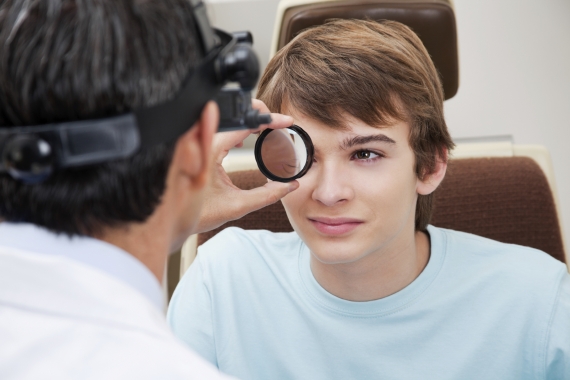Dilated Eye Exam in Cape Coral
The only way to know for sure if your eyes are completely healthy is to visit your eye care professional in Cape Coral for a dilated eye exam. Many vision problems and eye diseases have no symptoms or warning signs, and this examination can help your doctor detect problems that may lead to vision loss in their earliest stages.
 Elmquist Eye Group has been serving the residents of Cape Coral, Fort Myers, and Southwest Florida for more than two decades. E. Trevor Elmquist, DO, his partner Kate Wagner, OD, and his associate Nina Burt, OD, provide comprehensive eye exams and diagnosis and treatment of presbyopia, myopia, hyperopia, cataracts, glaucoma, diabetic eye disease, macular degeneration, dry eyes and other eye conditions.
Elmquist Eye Group has been serving the residents of Cape Coral, Fort Myers, and Southwest Florida for more than two decades. E. Trevor Elmquist, DO, his partner Kate Wagner, OD, and his associate Nina Burt, OD, provide comprehensive eye exams and diagnosis and treatment of presbyopia, myopia, hyperopia, cataracts, glaucoma, diabetic eye disease, macular degeneration, dry eyes and other eye conditions.
Both dilated and un-dilated eye exams provide important information to your eye doctor. Some parts of the front of the eye, such as the iris, should be examined when your eyes are not dilated. But the view to the back of the eye is limited when the pupil is not dilated and prevents the doctor from seeing the lens, optic nerve, macula and retina.
Why Dilated Eye Exams are Important
Dilation is an important part of a comprehensive eye exam because it enables your eye doctor to view the entire inside of your eye. This allows him or her to diagnose problems such as glaucoma, cataracts, macular degeneration, diabetes-related eye problems, tumors, and other conditions that often have no early warning signs.
Eye drops are placed in the eye to widen (dilate) the pupil, the opening in the center of the iris, and allow more light into the eye. Think of it like opening a door to let light into a dark room instead of limiting your view to only what you can see through the keyhole.
Glaucoma: A comprehensive dilated eye exam is important for detecting glaucoma, a disease that damages the optic nerve which relays information from the eyes to the brain. The dilated exam may show changes in the shape and color of the optic nerve fibers.
Diabetic Retinopathy: This is the most common diabetic eye disease and a leading cause of blindness in the U.S. The dilated eye exam may show swelling, leaking, or abnormal growth in the blood vessels in the retina, the light-sensitive tissue that lines the back of the eye. These changes may indicate the onset of diabetic retinopathy.
Age-Related Macular Degeneration (AMD): AMD is a common cause of vision loss and blindness in people over age 50. A dilated exam will help the eye doctor detect abnormal growth of blood vessels or deposits called drusen beneath the retina. These changes may indicate the deterioration of the macula, which is required for sharp, central vision.
In addition to these conditions, there are many others that require pupil dilation, such as the detection of a retinal tear or detachment, or an ocular tumor.
When You Should Have a Dilated Eye Exam
The American Academy of Ophthalmology recommends annual comprehensive dilated eye exams starting at age 60. African-Americans are at higher risk for developing glaucoma, however, so annual dilated eye exams should begin at 40 years old. And all individuals with diabetes should have a dilated eye exam at least once a year.
Protect your good vision and schedule an appointment for a dilated eye exam at Elmquist Eye Group in Cape Coral or Fort Myers. Call us today at (239) 936-2020.
